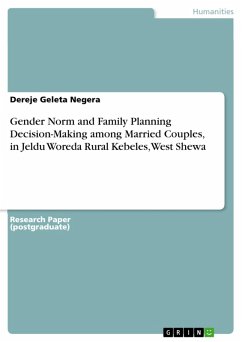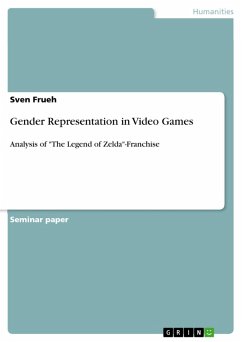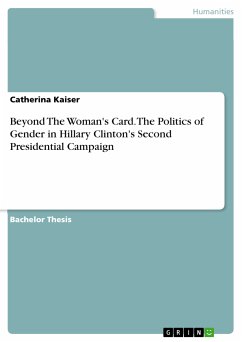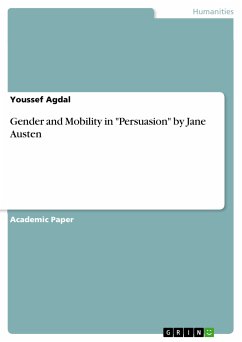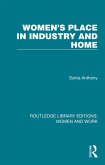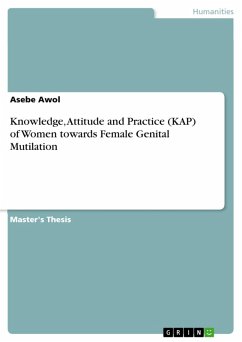Research Paper (postgraduate) from the year 2013 in the subject Gender Studies, grade: A+, Hawassa University (Hawassa University - Colege of Medicine and Health Sciences), language: English, abstract: Family planning is defined as the use of various methods of fertility control that will help individuals or couples to have the number of children they desire and at a planned time interval in order to ascertain the well-being of the children, parents and communities at large Different gender norms in the community were obstacles for family planning utilization in the community. Those gender norms directly or by complement with each other acts as the barriers of FP utilizations. Decision making power of men/husbands on family planning (needs for his consent by women/wives), seeing children as social prestige due to cultural beliefs, low status of women in community, undermining knowledge of women, limiting responsibility of women/wives to home, dominance of men/husbands on households, etc are affecting directly or by complement with each other the family planning decision making among Married couples. Objective: To explore the influence of gender norms on family planning decision- making among married couples, in Jeldu Woreda rural Kebeles, west Shewa 2012/13. Methods: A Qualitative study with grounded theory design was employed. Data collection was done using a semi-structured interview guide with open-ended questions. The methods employed were in-depth interview and focus group discussions. Data analysis was begun with transcription. Transcripts were coded using Atlas.ti-7 Software using thematic analysis. Recommendation: HEWs, woreda women's and children's affairs and family planning programmers needs to consider and design activities that have more holistic approach, including and integrating elements like men's dominance on households, the low-status women in the community, cultural beliefs related with number of children, attitudes towards gender and proverbs/sayings related with gender. BCC and IEC program targeting family planning at different levels of government FMOH, Regional health bureau and woreda health office should give consideration and attention for gender norms in the community.
Dieser Download kann aus rechtlichen Gründen nur mit Rechnungsadresse in A, B, BG, CY, CZ, D, DK, EW, E, FIN, F, GR, HR, H, IRL, I, LT, L, LR, M, NL, PL, P, R, S, SLO, SK ausgeliefert werden.

